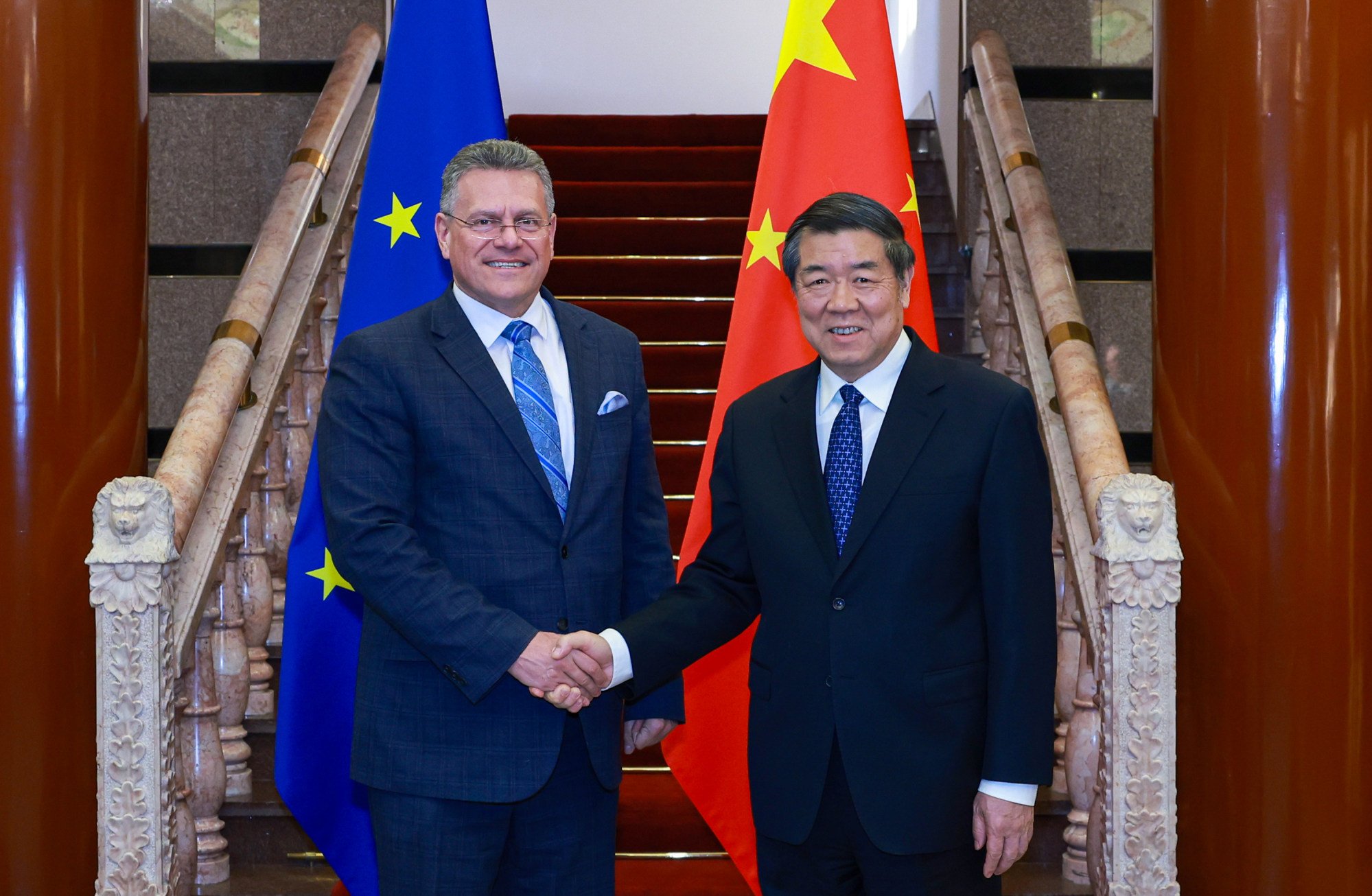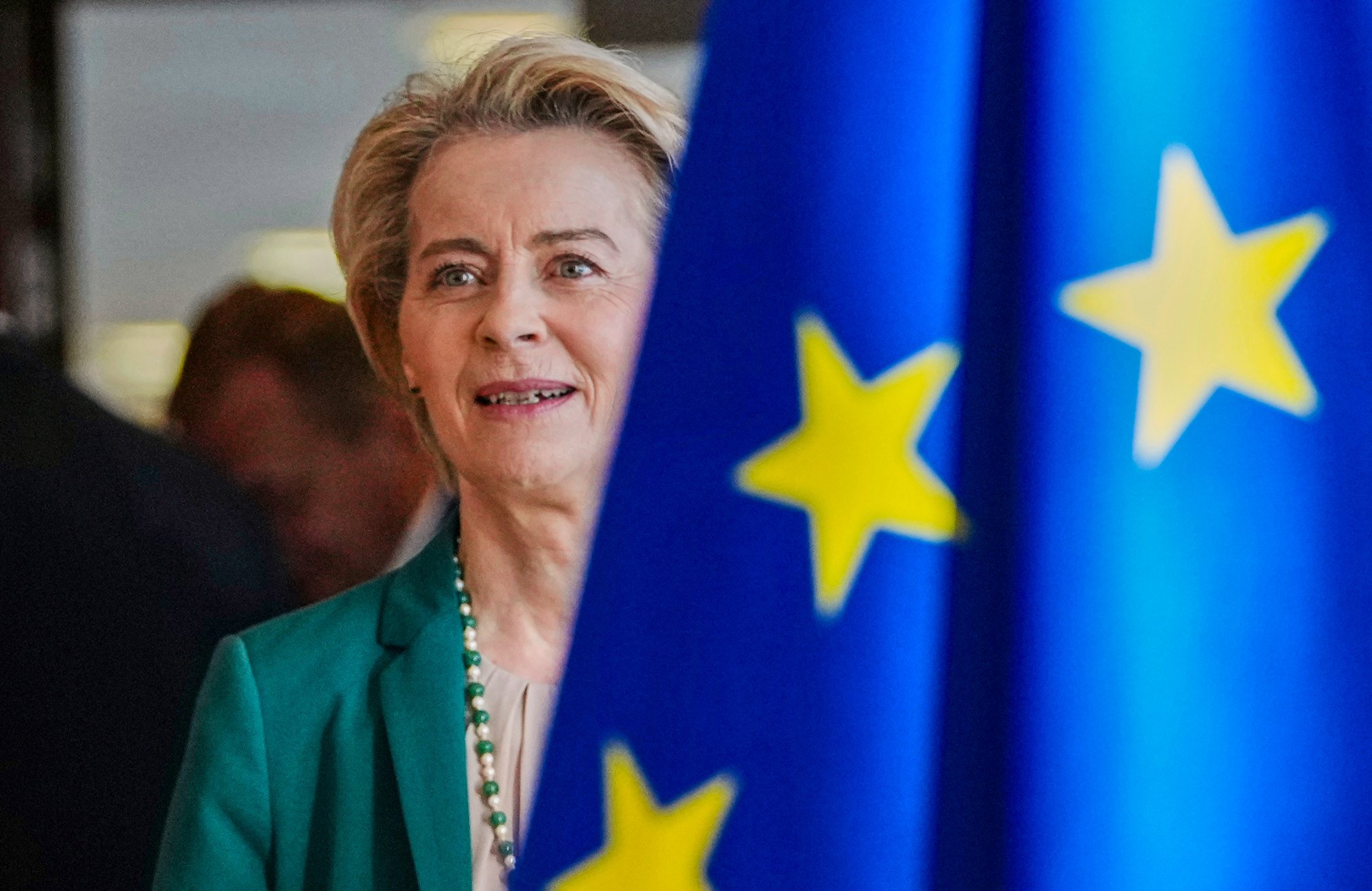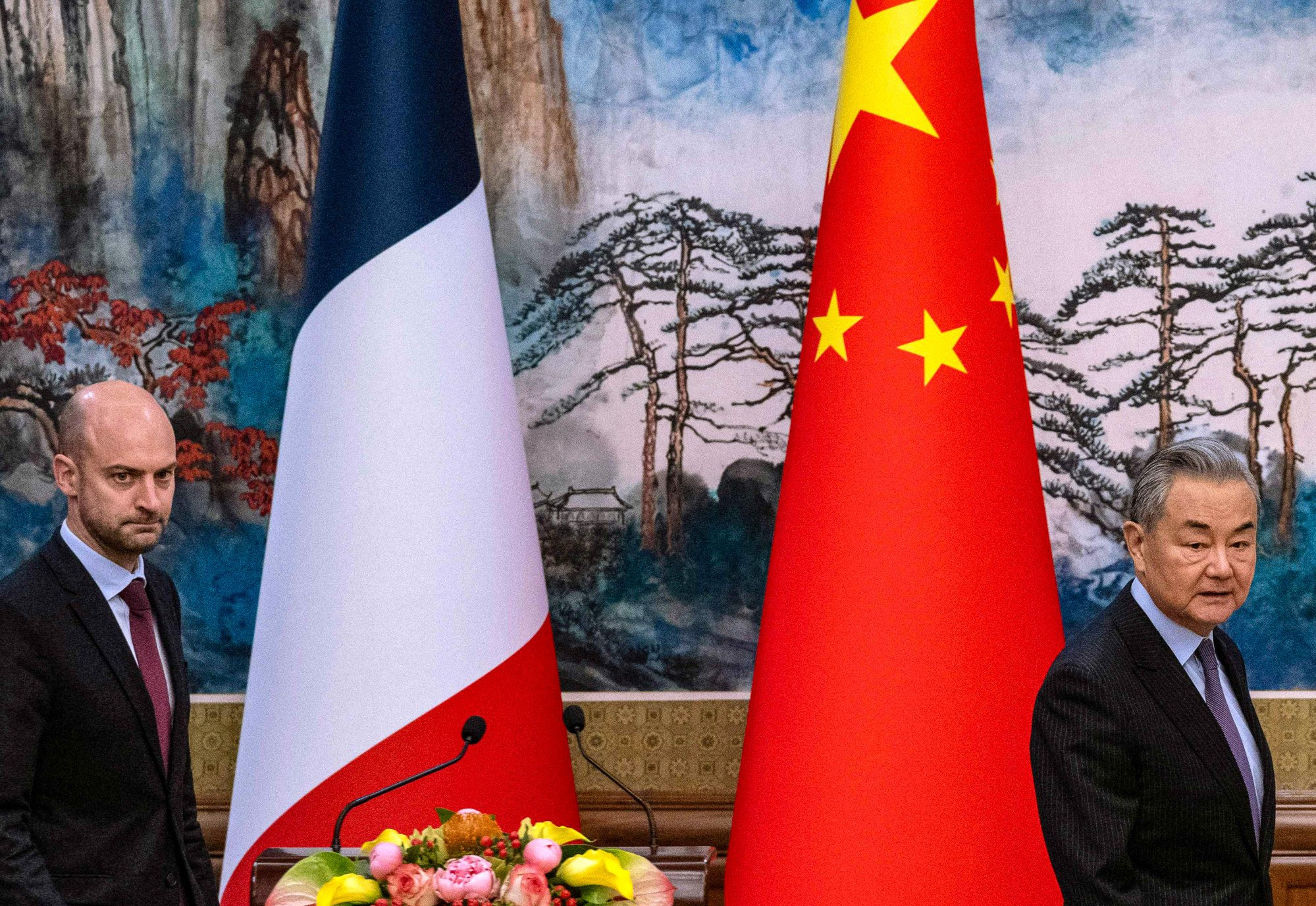In March, European diplomats found themselves puzzled when they were summoned by US government officials to clarify why both public and private satellite operators released pictures depicting areas in the Red Sea.
The European Union did not consider the images sensitive - they were merely the usual type published daily by agencies around the globe. However, the Donald Trump The administration maintained that they posed a threat to U.S. national security, say individuals acquainted with the situation.
Following the publication of " Signal-gate The narrative revealed how high-ranking US government members utilized the messaging platform to orchestrate military operations targeting Houthi individuals in the area. As a result, European Union authorities grasped the gravity of the situation from the American perspective, despite their stance that the images involved were harmless.
Are you looking for insights into the most significant issues and developments globally? Find your answers here. SCMP Knowledge Our latest platform features handpicked content including explainers, FAQs, analyses, and infographics, all provided by our acclaimed team.
This episode highlights the disconnect between Europe and official thought processes in Washington. Following Trump’s comeback, the European Union has frequently been under attack—facing tariffs, being subjected to the President's aggressive territorial ambitions, and becoming a focal point for conservative criticism from various members of his administration.
In a world where a simple verbal misstep might result in diplomatic protests, trade barriers, or even more severe consequences, officials have opted for complete silence when speaking in public. A source from Brussels commented on this approach last week, referring to it as a "possum strategy... stay low and pray no one notices you."
This novel method has also influenced how the EU interacts with other nations, which was evident when its trade commissioner was involved. Maros Sefcovic His journey to China last week.
The individual from Slovakia stayed in Beijing for three days, where he met with Vice-Premier He Lifeng, Commerce Minister Wang Wentao, and Customs Minister Sun Meijun. Although he delivered a talk at the EU Chamber of Commerce in China, this event went largely unnoticed except for a couple of tweets.
No formal communications occurred throughout the journey. The press conference scheduled for Saturday was called off at the behest of the European Commission’s leaders, who also declined to release statements made to the business community. It wasn’t until Monday—days following the concluded discussions—that a concise summary highlighting the visit was released. This came well after China had already disseminated their account of events.
Authorities stated that this shift demonstrates a newly acquired pragmatic approach which will henceforth shape the bloc’s tactics toward China along with their method of communication regarding these strategies.

Over the past two years, since European Commission President Ursula von der Leyen stated that the EU should "de-risk" its relationship with China, this approach has been under discussion. now-famous speech in Brussels , her administration remained closely aligned with the China-focused policies of ex-US President Joe Biden.
There were similarities in how Washington and Brussels perceived the challenges presented by Beijing. Both were concerned about these issues. China's growing relationship with Russia throughout the duration of the latter's war with Ukraine Economic policies leading to excess capacity being exported, they concurred, posed threats to companies in the West. Persistent concerns about human rights along with China’s increasing presence in developing nations were likewise areas of mutual worry.
What set them apart was their approach to addressing the issue.
The statement 'we aim to de-risk rather than decouple' holds true for us; however, we aren’t certain that others share this view,” remarked an EU official in private remarks made prior to the previous year’s U.S. elections. According to them, some may envision a scenario about ten years ahead wherein ‘de-risking’ would result in a global environment where operations could proceed independently of China.
Nevertheless, to ensure Biden remained in the White House for another term, the European Commission expressed willingness to adopt some of his China-related strategies.
In 2023, for instance, officials quietly expressed dissatisfaction with von der Leyen’s push for an economic security strategy, portions of which they alleged were lifted straight from the US National Security Adviser Jake Sullivan’s playbook at the time.
Von der Leyen's chief of staff, Björn Seibert, frequently explained to diplomats and officials the importance of aligning with the United States regarding China in order to support Biden’s re-election bid, since Biden has stronger trans-Atlantic leanings. This approach might now be seen as having boomeranged against them.
Last week, when Seibert accompanied Sefcovic to Washington, he did not manage to arrange a meeting with the newly appointed National Security Adviser Mike Waltz. EU officials think this was due to their overt backing of Biden.
One high-ranking official commented, 'We messed up,' believing that the committee drastically overstated the impact of transatlantic collaboration on China regarding the U.S. elections.
Currently, with Trump having severely strained relationships with Europe, the EU has to confront China independently, managing these challenges alongside the pressures from corporations and individual countries within the union to avoid engaging in comprehensive trade conflicts on dual fronts.
This implies, as insiders stated, that Chinese authorities can no longer claim they have issues with the problems in the relationship It is not Washington's fault. However, this does not imply that the relationship between the EU and China will remain unaffected by President Trump's unpredictable decisions.
There are widespread rumors in Brussels suggesting that the U.S. president might soon strike a separate agreement with China, potentially leaving Europe sidelined. According to this narrative, such a pact could involve massive Chinese investment in the U.S. economy precisely when the European Union is attempting to secure similar investments for itself.
One official stated, 'We remain uncertain about what to trust, yet in such conditions, everything seems feasible.'
Despite all the commotion, Europe is eager to make sure its interests are adequately represented in dealings with China. During Sefcovic's visit, he expressed his willingness to strengthen relations with China. However, he also emphasized that the Chinese government must address Europe’s concerns seriously, as reported by individuals aware of his interactions.
"Overall, we are prepared to collaborate with China provided that the collaboration is mutual and transparent. Should they not reciprocate this openness towards us, we will have no choice but to restrict our engagement with them," stated a diplomat who was present at the discussion.

According to information from business sources, Sefcovic’s comments at the Beijing Chamber of Commerce were very similar to the points raised in two speeches delivered earlier this year by von der Leyen. She startled many observers when she stated that the Union was prepared to enhance economic relations and investments with China, despite intentions to continue de-risking efforts.
Those in Europe might not appreciate this tougher, more business-like situation," von der Leyen stated during an address to EU representatives in February. "However, Europe needs to confront the world as it truly is.
Pragmatism is not confined to Europe alone. During the weekend, regional adversaries Japan and South Korea concurred with China to enhance cooperation in trade and investment, indicating apprehensions about Trump—who is the architect— The Craft of Negotiation - is even encouraging opposing states to resolve their disputes.
In line with this "transactional reality," Sefcovic concurred on setting up a discussion aimed at promoting investments in Europe’s electric vehicle supply chain. The purpose was “to guarantee their increased role in bolstering long-term European competitiveness and generating high-quality employment,” as stated in the EU communiqué.
This underscores the commission's emphasis that investments should contribute genuine value to the EU economy and ideally facilitate the transfer of crucial technologies to European allies.
The summary likewise expressed anger over China's "illegitimate subsidies," the absence of a "fair competitive environment," and the overall "imbalanced" character of their interaction, affirming that the commission will persist with legal action against what they perceive as unjust trading practices. Nonetheless, it remains uncertain just how effective Sefcovic’s efforts were.
No indications emerged during the visit suggesting that China was ready to tackle the EU’s worries over subsidized Chinese goods inundating European markets. Vice Premier He Lifeng conveyed the message that China has the capability to attain complete self-reliance and does not require Europe,” noted Noah Barkin, an EU-China specialist with the German Marshall Fund of the U.S., in a newsletter released on Tuesday.
The former leading EU diplomat Josep Borrell would discuss a "cacophony" of European opinions regarding China, pointing out the absence of a unified stance which frequently causes disarray.
As Sefcovic carried out his covert operation last week, this discord became evident, indicating that navigating the intricate challenge involving China will be even tougher under Trump’s influence.
In Beijing, the French Foreign Minister Jean-Noel Barrot was pressing his counterpart Wang Yi to take further action to curb Russia’s invasion of Ukraine. Additionally, he managed to secure an extension on the permanent Chinese tariffs for his nation’s cognac exports.
"Thanks to the resumption of tax-free sales of cognac and armagnac, which account for a substantial portion of business for certain labels, this move will provide our organization with several months of relief," stated Barrot.

In another part of town, several European companies participated in a meeting with the Chinese president. Xi Jinping , portrayed China as an emblem of openness, simultaneously informing them that "some nations are constructing 'small enclosures surrounded by tall fences,' erecting tariff barriers, and turning economic and trade matters into political tools, instruments, weapons, and excessively security-focused issues."
Meanwhile, in Hainan, numerous current and past European Union ministers were promoting enhanced relations between their bloc and China.
"The European Union needs to mend relations with China since China is now a systemic partner," stated the ex-Spanish foreign minister. Arancha Gonzalez during an interview on the fringes of the Boao Forum.
However, for this to happen, Gonzalez stated, Beijing needs to demonstrate flexibility.
Should China genuinely wish to invest in the future of its relationship with Europe, it should understand what matters most to Europe.
More Articles from SCMP
Putin meets with China’s Wang Yi, expressing anticipation for Xi Jinping's visit in May.
Jailed Tycoon Jimmy Lai: US Suggestion to Name DC Address After Him Near Hong Kong Trade Office
China could draw inspiration from post-war America’s approach to work relief programs.
Philippine defense leader cautions forces to 'begin preparing' should tensions with Taiwan escalate
The article initially appeared on the South China Morning Post (www.scmp.com), which is the premier source for news coverage of China and Asia.
Copyright © 2025. South China Morning Post Publishers Ltd. All rights reserved.
.png)